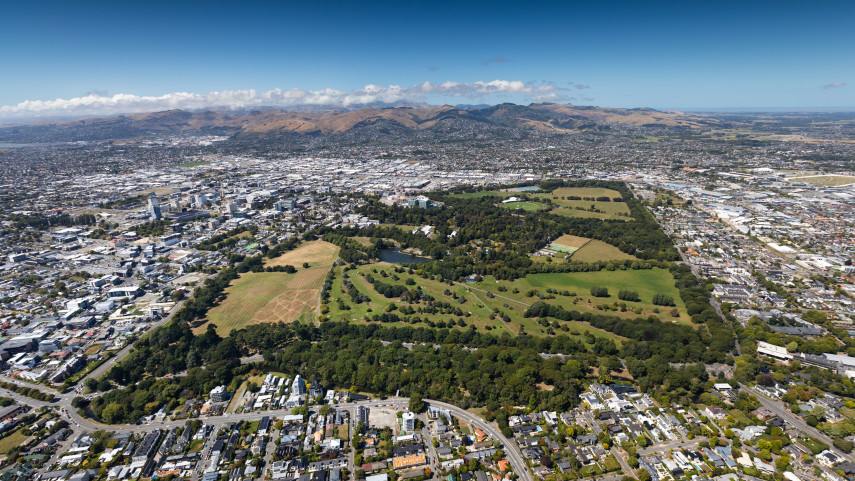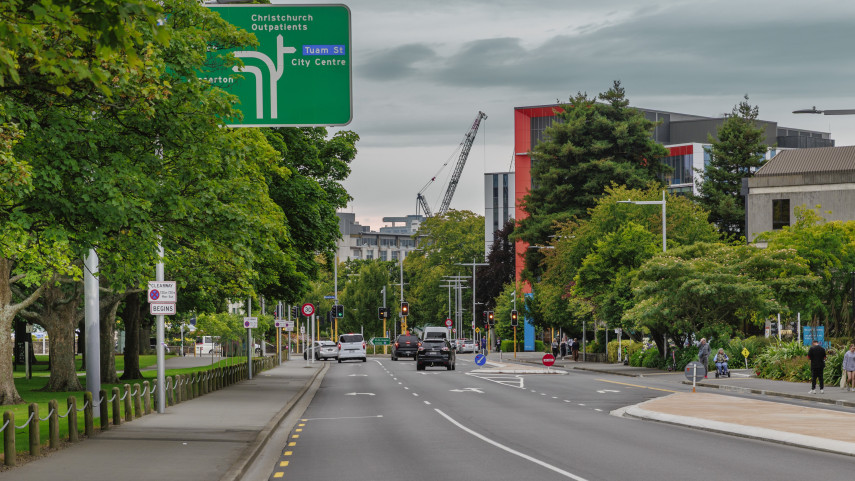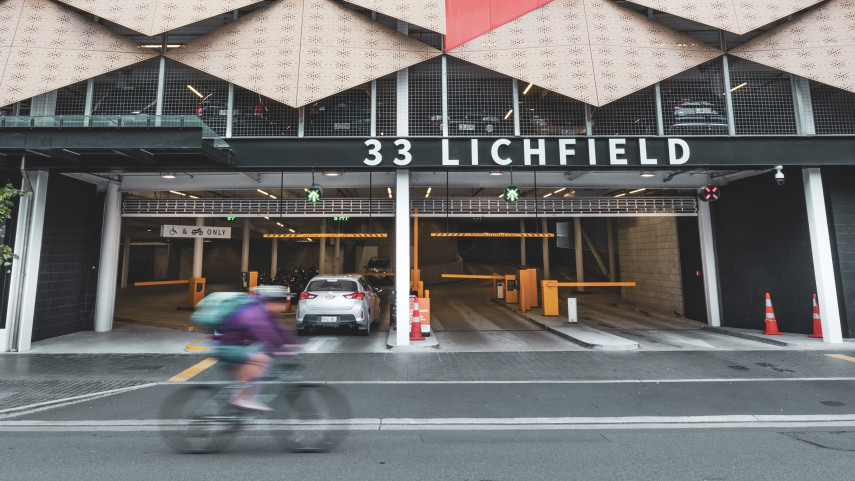Depending on their nature, scale and location, place-making projects may require landowner permission and some form of consent, licence or permit from the Council, often driven by legal requirements outside Council’s control.
If the project is not on your land, you will need permission from the landowner to go ahead.
This includes activities or events on Council land, such as parks and streets. Irrespective of whether the Council seeks proposals for the use of a specific site (e.g. for a community-run farmers' market) or you request the use of a specific site, landowner permission is granted in the form of a permit and may have conditions for activities, events and other projects taking place on them.
If the landowner is unknown to you, it may be helpful to contact Life in Vacant Spaces(external link) who can enquire with the landowner on your behalf.
| Time | 1 to 12 months | A low-impact event such as a small community gathering on Council land requires five weeks minimum to process an event permit application, whereas a high-impact event with over 10,000 attendees and road closures requires six to eight months' notice. If the latter, see Use of legal road below. |
|---|---|---|
| Cost | $0 to $1,000 | A fee is calculated based on the nature, scale and location of the project for which permission is sought and charged on submission of an application, and must be paid before the permit is issued. |
| Effort | Moderate | An Events Partnerships and Development Advisor can assist you through the Council permit process. Phone 03 941 8999 or contact eventsdevelopment@ccc.govt.nz. |
A licence or permit from the Council is required for business activities such as trading in a public place, and selling food and alcohol.
Trading in a public place
Trading in public places from retail stalls and mobile shops requires a permit. Mobile food carts must also be registered with the Council, which requires two weeks for approval, and will need to comply with the Food Act 2014.
|
Time |
1 to 4 weeks |
Applications will be actioned within 10 working days provided all the required information has been submitted. |
|---|---|---|
|
Cost |
$0 to $1,000 |
Licence fees for trading in a public place are $84 for a stall and $136 for a mobile or travelling shop. |
|
Effort |
Minimal to moderate |
Effort required depends on the nature, scale and location of the project. The sale of food requires more effort to comply with the Food Act 2014 (see below for further clarification). |
Sale of food for fundraisers and events
Some rules apply to selling or providing food at community fundraisers (e.g. sausage sizzles and cake stalls), events, or special occasions. If you are selling food once a year at a one-off event, or at a fundraiser up to 20 times in a year, your only obligation is to sell safe and suitable food.
Information for safe food handling and associated legal requirements can be found on the New Zealand Food Safety(external link) website.
|
Time |
1 to 4 weeks |
This will be longer if registering under food safety legislation. |
|---|---|---|
|
Cost |
$0 to $1,000 |
If applicable, learn more about fees and charges(external link) for registering a food business. |
|
Effort |
Moderate |
This depends on the nature, scale and location of the project. Food licence applications require supporting documents, including a scope of operations. |
Sale and supply of alcohol
Selling alcohol at events requires a special alcohol licence which must be lodged with the Council.
|
Time |
1 to 4 weeks |
Special alcohol licences for events must be lodged at least 20 working days before the event. Make sure to leave enough time beforehand to plan and prepare the application. |
|---|---|---|
|
Cost |
$0 to $1,000 |
Special alcohol licences range from $63.25 for a small event to $575 for a large event. |
|
Effort |
Moderate |
Applications require supporting documents, including site plans, confirmation of any other consents or permissions and an Alcohol Management Plan if the number of guests exceeds 150. |
A resource consent is a formal approval needed when an activity does not comply with the rules of the Christchurch District Plan, or the Plan states that a resource consent is required for that particular activity. The Plan does permit some temporary activities, buildings and events in specified circumstances.
While most building work will require a building consent under the Building Act 2004, some specified low-risk building work can be done without one. Always check with the Council to see if a building consent is required before starting any building work.
To find out whether your project requires a resource consent or a building consent, contact the Council on (03) 941 8999 to discuss it with a Duty Planner and/or Duty Building Consent Officer. If a resource and/or building consent is required, pre-application meetings are possible and encouraged. These provide an opportunity for you to discuss your proposed project and information requirements with relevant Council staff before lodging your application/s. Contact the Council on (03) 941 8686 or email CCGRegulatoryAdvice@ccc.govt.nz
For more information regarding resource and/or building consents (including how you can support someone else’s resource consent application), see:
|
Time |
1 to 12 months |
Should a resource or building consent be required, leave plenty of time to prepare an application. The timeframe for processing a non-notified resource consent application is 20 working days. These are extended if additional information needs to be provided. |
|---|---|---|
|
Cost |
$1,000+ |
Depends on the nature, scale and location of the project. For detailed information see Resource consent fees and Building consent fees. |
|
Effort |
Significant |
Applications for consents require additional supporting information, including plans and details of the site and project. Before you apply, make sure you have the relevant documents ready. |
Council approval is required for the closure and temporary use of legal road(external link) for street parties and other events, storage or fencing/hoarding.
A Traffic Management Plan (TMP) written by a qualified traffic engineer is required for any activity which varies the normal operating condition of a legal road, whether located inside or outside of the legal road.
For example, high generators of vehicular or pedestrian traffic, such as festivals, have the potential to adversely affect traffic flow and safety.
|
Time |
1 to 12 months |
The TMP process varies in length dependent on the scale of the project and the type of road affected. TMPs for small, non-commercial community events with fewer than 150 people in attendance must be submitted 30 days in advance. For larger events, the timeframe to submit a TMP is at least 120 days prior to the event. |
|---|---|---|
|
Cost |
$0 to $1,000 |
This depends on the size of the event and type of road impacted. See street and transport fees for more information. |
|
Effort |
Significant |
To obtain a TMP, all details about the proposed activity need to be sent to a traffic management provider, who will assist you by checking to make sure all information is correct and supplied. |
Related news

Draft Annual Plan to go out for consultation
Christchurch City Council has proposed its Draft Annual Plan for the coming year, and it’s now the public’s turn to weigh in.
10 Feb 2026
Feedback sought on clearway trial
Christchurch City Council is asking for feedback on the clearway being trialled on Hagley Avenue.
30 Jan 2026
Consultation opens for Lichfield Street Carpark
Christchurch residents are being encouraged to give their feedback on the future of Council-owned Lichfield Street Carpark.
10 Nov 2025